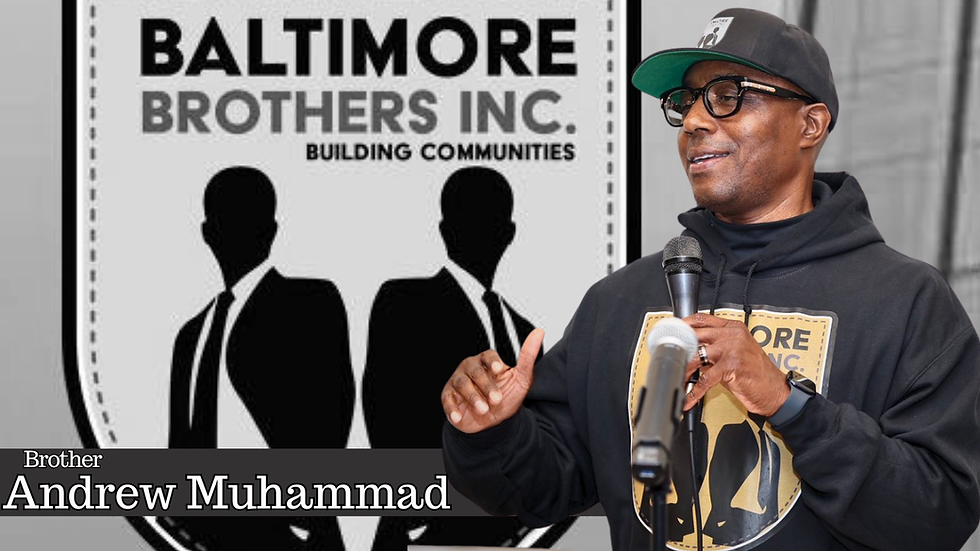“Passport to Power: Why Black America Should Reconsider Africa”
- Brother Levon X

- Mar 31
- 4 min read

The idea of Black Americans returning to Africa isn’t just a trend—it’s a movement that’s been growing for centuries. It’s about more than travel. It’s about purpose, power, and reconnecting with a land that holds both our past and our potential.
Marcus Garvey, one of the most powerful voices in Black history, laid the foundation for this vision. In the early 1900s, he shook the world with a bold message: “Africa for the Africans, at home and abroad.” Mr. Garvey wasn’t just dreaming—he was organizing.
Through the Universal Negro Improvement Association (UNIA) and the launch of the Black Star Line, he aimed to connect Black people worldwide to reclaim identity, build wealth, and foster independence. For Brother Garvey, Africa was not a place of escape—it was the launching pad for a global Black renaissance.
Decades later, W.E.B. Du Bois, another intellectual giant, took that vision a step further. At the age of 93, Mr. Du Bois moved to Ghana in 1961, accepting an invitation from President Kwame Nkrumah to work on the Encyclopedia Africana. Ghana wasn’t just his retirement plan—it was the next phase of his life’s mission. His home in Accra is now a museum and meeting space, symbolizing a bridge between African Americans and the African continent.
Today, more Black Americans are revisiting this dream—but now with modern tools and global access. And here’s the truth, the American dollar stretches much further in many African nations than it does here at home. Whether it’s housing, fresh food, land, or labor—your money can go a long way.
In many African countries, Black Americans are finding what often feels out of reach in the U.S.—the ability to own land, build a home, start a business, or even retire comfortably without being buried in debt or limited by racial and economic barriers.
Let’s break it down:
Owning Land Outright: In countries like Ghana, foreigners (including Black Americans) can legally lease land for up to 50 years with an option to renew. In some cases, especially when partnered with a local or married to a Ghanaian citizen, you can acquire land on more permanent terms. In Rwanda, the government has streamlined land registration and title transfers, making it easier to legally own and use land for personal or business use.
Building a Home: The cost of building a home in many African nations is significantly lower than in the U.S.. In Ghana, for example, a modern three-bedroom home can be built for $30,000 to $60,000, depending on location and materials—compared to $300,000+ in most American cities. Labor costs are lower, and materials are often sourced locally.
Starting a Business: African countries like Rwanda, Ghana, and Kenya rank high on the World Bank’s “Ease of Doing Business” index in Sub-Saharan Africa. Rwanda, in particular, is known for its low corruption levels and business-friendly environment. Entrepreneurs can register a business in as little as 6 hours online in Rwanda, and Ghana is actively welcoming diasporic investment through programs like Beyond the Return.
Retiring Comfortably: Many Black Americans are finding that their retirement income stretches much further in Africa. The cost of living in cities like Accra (Ghana), Dar es Salaam (Tanzania), and Kigali (Rwanda) is much lower than in New York, Atlanta, or Los Angeles. A monthly budget of $1,500–$2,000 can cover housing, healthcare, food, transportation, and even entertainment for a retired couple.
Tech, Culture, and Tourism Are Booming: Countries like Nigeria, South Africa, and Kenya have booming tech industries. Kenya’s capital, Nairobi, is even nicknamed “Silicon Savannah” because of its growing number of tech startups and innovation hubs. South Africa has long been a destination for tourism, creative arts, and business, while Tanzania offers natural beauty and entrepreneurial opportunities near its coastal and safari zones.
These are real opportunities, not just dreams. And many governments are opening their doors to the diaspora—offering special programs, dual citizenship options, and business incentives for people of African descent ready to reconnect and reinvest.
But let’s be real—don’t book a one-way ticket just yet.
It’s critical to visit first. Walk the streets. Talk to the people. Learn the customs. Every African country has its own culture, laws, challenges, and pace of life. You can’t truly know what you’re stepping into from YouTube videos or social media clips alone. Visiting helps you move with respect, not entitlement.
And please—leave the stereotypes at the airport.
Don’t come with a savior complex. Don’t assume people are poor, uneducated, or waiting for Western validation. Africa is rich in intellect, innovation, and culture. The last thing it needs is someone trying to turn it into a mini-America. What’s needed is humility, curiosity, and a willingness to listen and learn before trying to build or lead.
Repatriation isn’t just about relocation—it’s about transformation. It’s about shifting our mindset from survival to sovereignty. From consumer to creator. From being tolerated to being celebrated.
Whether you choose to visit, invest, or relocate, know that the road back to Africa is still wide open. The question is: are we ready to walk it?
References:
World Bank – Doing Business Index: https://www.worldbank.org/en/programs/business-enabling-environment
Ghana Investment Promotion Centre (GIPC): https://gipc.gov.gh
Rwanda Development Board – Business Registration: https://rdb.rw
Cost of Building a House in Ghana: https://meqasa.com
International Living – Retiring in Africa: https://internationalliving.com
Beyond the Return Initiative – Ghana: https://beyondthereturngh.com
TechCrunch – “Why Africa Is a Startup Goldmine”: https://techcrunch.com





Comments